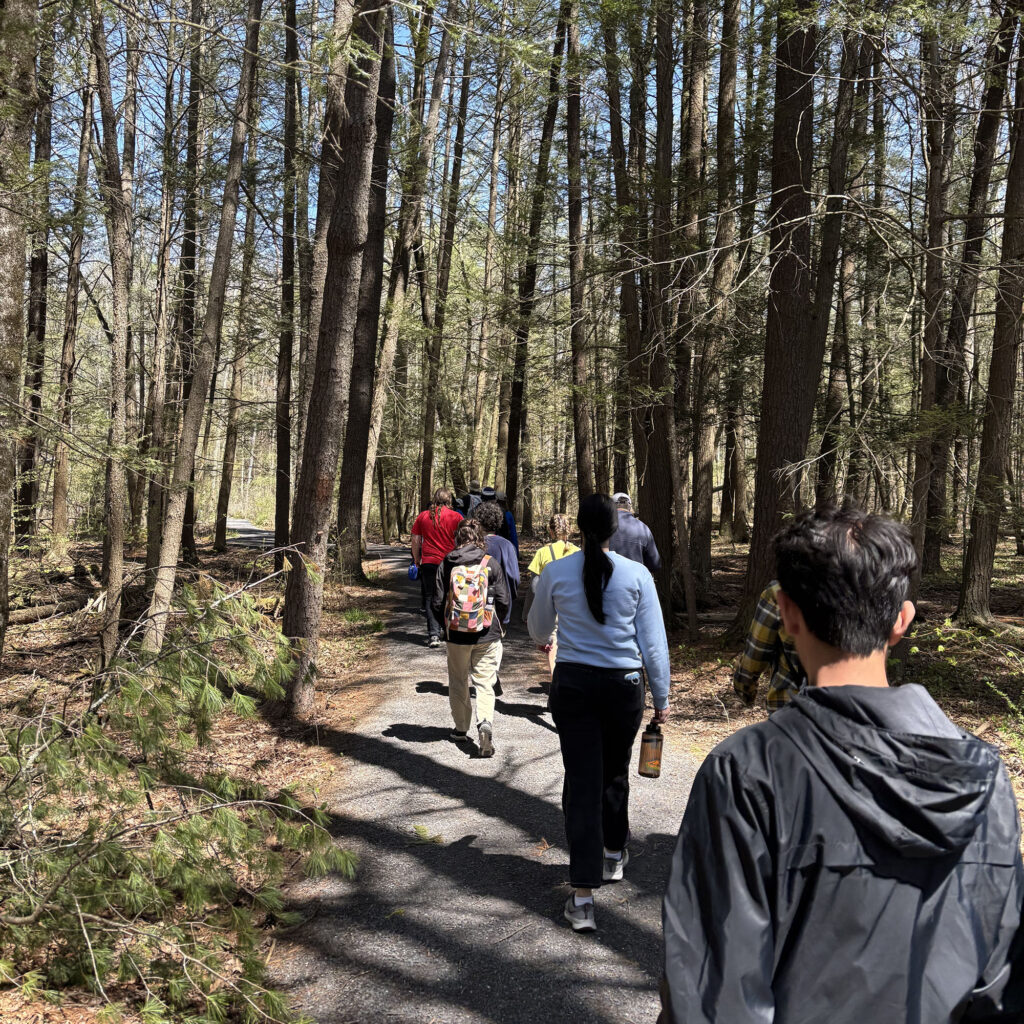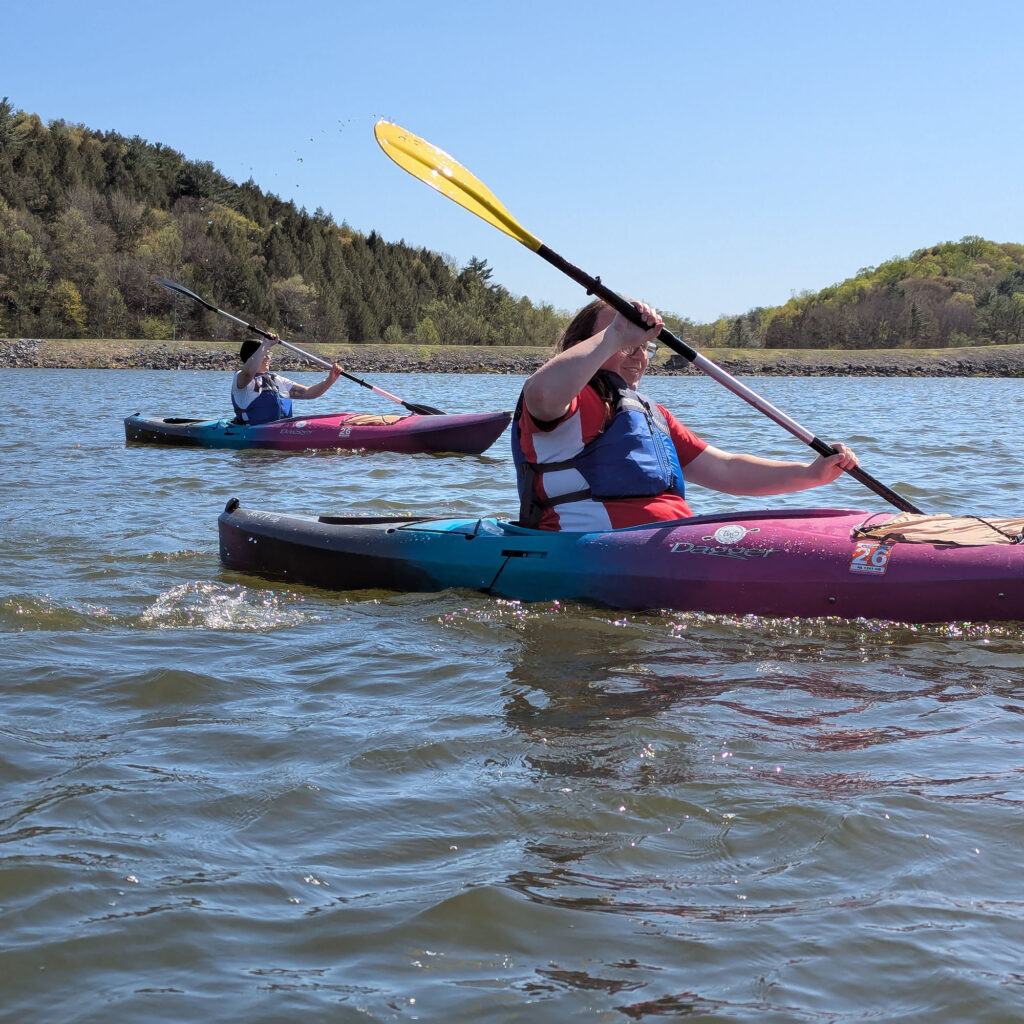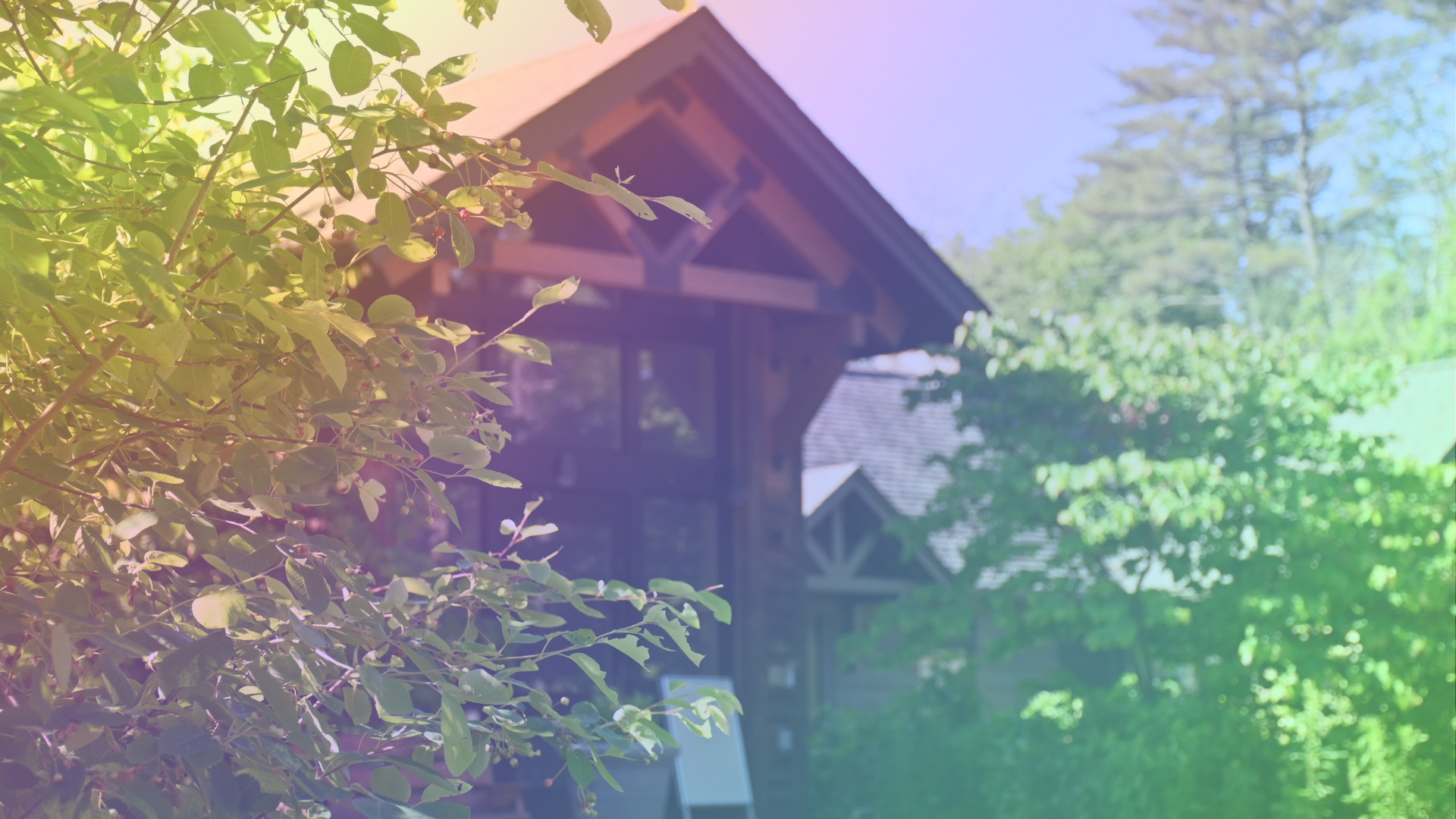
Nature Is Queer
Nature is dynamic and strange and wonderful. Nature is colorful and dramatic, creative and expressive. Nature sparks our curiosity and ignites our imagination. And it’s for all these reasons and more that so many in the queer community have found solace in the natural world. But, it goes beyond the abstract. The outdoors is teeming with plants and animals that subvert the black-and-white expectations that we often prescribe to the world. So much so, in fact, that queer ecology has started to gain traction as a scientific lens through which to view the natural world.
Pattie Gonia, a critically acclaimed climate activist and environmental drag queen, visited Penn State earlier this spring with the student drag organization Opulence for a panel Q&A with students. She explored the idea that nature is queer by putting the spotlight on clownfish, a species where males often transition to females to fill a need in their ecosystem. Her Instagram page is riddled with more examples, from striped maple trees that transition sexes multiple times throughout their lives to banana slugs that have both male and female reproductive organs. According to an article published in Nature Communications, same-sex sexual behavior “has been reported in over 1,500 animal species, including all main groups from invertebrates … to vertebrates.” It seems the natural world does not subscribe to the exclusively human prejudice that being queer is somehow “unnatural.” In nature, everything has its place and its purpose; everything belongs just as it is.
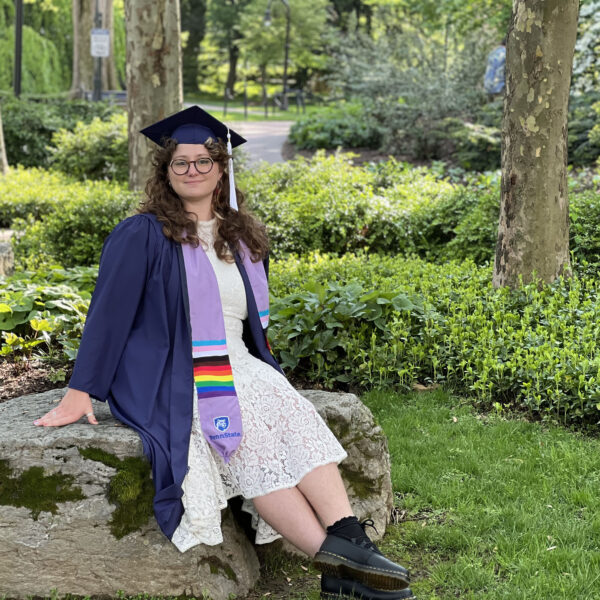
Sophia (Fi) Montany (she/they) is a recent Penn State graduate who has found belonging in the outdoors. While she enjoys hiking and other outdoor activities, the main way she enjoys the outdoors is “just sitting on my porch and watching the sunset or looking at the mountains and watching the wind blow through the trees and feeling at peace.” Fi grew up in New Jersey and didn’t feel particularly acquainted with the outdoors until she came to Penn State, where she felt called to start exploring the many natural spaces surrounding campus.
While Fi had some anxiety about exploring new spaces and activities, she was also excited. Unfortunately, this isn’t the same experience that every queer person has. Throughout most of history, and still in many places today, many queer folks (and other marginalized communities, especially people of color) are justifiably apprehensive of the remote isolation and vulnerability that can come with venturing into outdoor spaces. This apprehension often goes beyond general nervousness and is rooted in a real history of harassment, harm, and exclusion from outdoor spaces; that’s why building inclusive spaces in the outdoors is so important. Organizations like The Venture Out Project, Brave Trails, and Philly Queer Birders are just a few of the many groups helping LGBTQ+ folks reclaim their belonging in the natural world today. This visibility is an important first step in creating more equitable spaces.
Community as a Solution
Pattie Gonia’s panel discussion emphasized the idea of community as a solution. There are some uncanny parallels to draw between recent legislative attacks on public lands and the ever-growing mountain of anti-LGBTQ+ bills, but in both instances, community is a powerful tool in moving forward.
Building a community at Penn State is what inspired Fi to start exploring and getting outside of her comfort zone in the outdoors; likewise, community is what gives her hope in the face of threats to LGBTQ+ freedoms and safety. She leans on the generations of queer folks who have come before her. “Knowing that we have a past and we have a future” is how she gets through tough times. “That’s a really interesting part of being outside as well, is finding that strength,” she says.
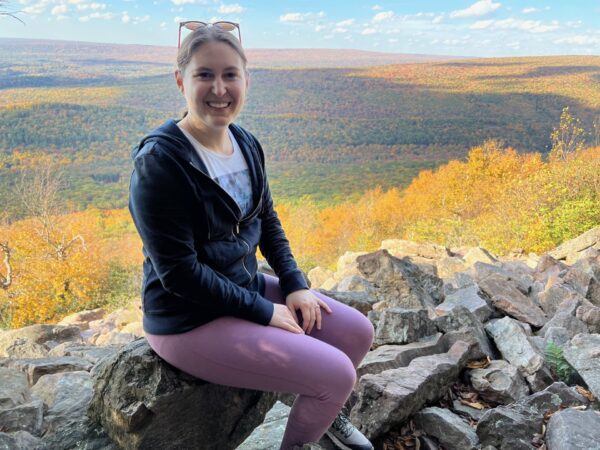
Kate Rawson (she/her), an avid hiker and the assistant director for Penn State’s Center for Sexual and Gender Diversity (CSGD), says that “being able to see and connect with people who look like you or hold similar identities to you, who understand what you’ve been through… that’s really powerful.”
The CSGD is an on-campus resource for LGBTQ+ students at Penn State, and they work to provide students with the support and community they may not have had before. Kate says that “for many students, especially if they come from rural Pennsylvania or other rural places, they might not have had any type of community spaces or opportunities to meet people like them before.”
Bringing Pride Outside
Kate attended Pattie Gonia’s discussion and was moved by the big questions that students were asking: How do we live more sustainably? How do we slow down climate change? What struck Kate was the answer that Pattie kept coming back to.
“Pattie’s larger message is that it starts with you just getting outside,” Kate says. “You have to really care about something and understand something before you can truly fight for it.”
The CSGD has developed some of its own opportunities to help queer students get outside. In April, students of all backgrounds and majors visited the Stone Valley Forest as part of the CSGD’s annual Get Outside for Pride event. The day is designed for LGBTQ+ students to explore a wide variety of activities in the outdoors, from hiking to kayaking to engaging with Shaver’s Creek’s ambassador animals — all with an emphasis on physical and mental health. This year’s event saw attendance from both undergraduate and graduate students from a wide variety of majors and a mix of experience with the outdoors.
Throughout the year, the CSGD also hosts the Super Gay 5k, cosponsors Women and Queer Nights at the Penn State Bike Den, and invites students to travel while exploring LGBTQ+ history through Out and Engaged trips. These opportunities are shining examples of ways that organizations can create spaces for the queer community to build skills in outdoor activities like running, biking, and traveling — skills they may not have had the resources, safety, or support to explore before.
In Fi’s opinion, building these foundational skills is one of the biggest ways organizations can create access for LGBTQ+ folks. “Teaching people the things they might have missed” is crucial, Fi says, “because a lot of people don’t have those experiences of learning from family or friends that they would have typically had, had they not been queer.” Fi now works as a programming staff member with the CSGD and is looking forward to helping to connect students to the important resources the center offers.
Kate reflects on the work of the CSGD and how meaningful it is to see LGBTQ+ students building friendships and finding belonging at Penn State. She smiles, saying that this is the reason she keeps doing this work.
Everyone Belongs at Shaver’s Creek
Our mission at Shaver’s Creek is to connect people to nature and people to each other. Ultimately, we want to inspire folks, whether it be through classes or summer camps or nature journaling or wildlife programs, to find ways to live in harmony with each other and the natural world and to take actions to protect the ecosystems and diversity of life around us. And for our mission to be successful, it needs to include all of us.
So, to all the lesbian, gay, bisexual, transgender, and queer individuals reading this blog, we recognize and respect your role in the Shaver’s Creek community. Like a gender-fluid clownfish without its stripes, Shaver’s Creek would not be what it is today without you. The relationships we build, the art we make, and the research we foster would tell only half the story without your voices present.
Our nature center is for you. Our trails, our programs, and our events are for you. You are invited to come and explore freely, safely, and with the full right to be exactly who you are — and perhaps to even find yourself reflected in the beauty and diversity around every corner.
Shaver’s Creek thrives surrounded by the dynamic and diverse Stone Valley Forest, and our community is made all the more rich with you a part of it. Happy Pride Month from Shaver’s Creek!
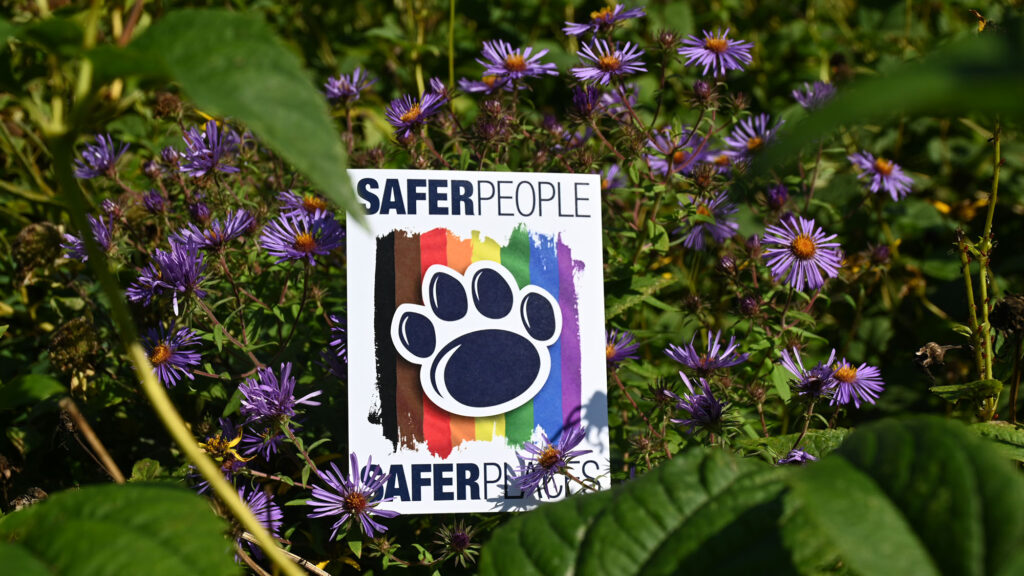
Support the LGBTQ+ Community at Penn State
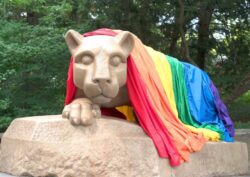 Now more than ever, your support makes a difference! Support the good work of the Center for Sexual and Gender Diversity today by:
Now more than ever, your support makes a difference! Support the good work of the Center for Sexual and Gender Diversity today by:
- participating in CSGD sponsored programs and community events throughout the year
- donating your clothes to the Clothing Transit, a resource for students to find gender-affirming clothing, cost-free
- bringing non-perishable food items to the CSGD office (LL011 HUB-Robeson Center) to contribute to their free student food pantry
- gifting a donation to support the work of the CSGD, fund student scholarships, or contribute to an emergency support fund
Additionally, faculty, staff, and graduate students can participate in workshops (or organize a training for your office) to learn more about how you can support the LGBTQ+ community through your work at Penn State.

